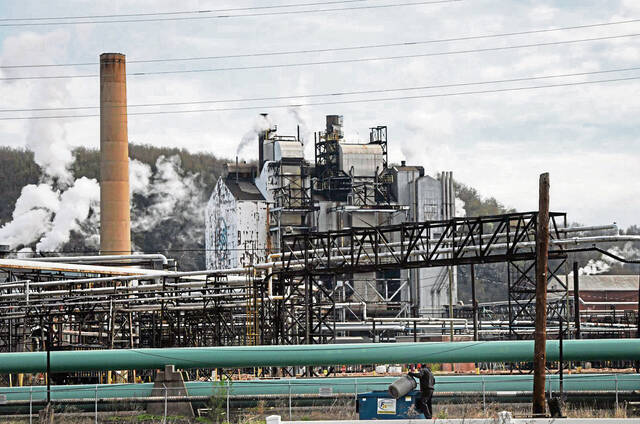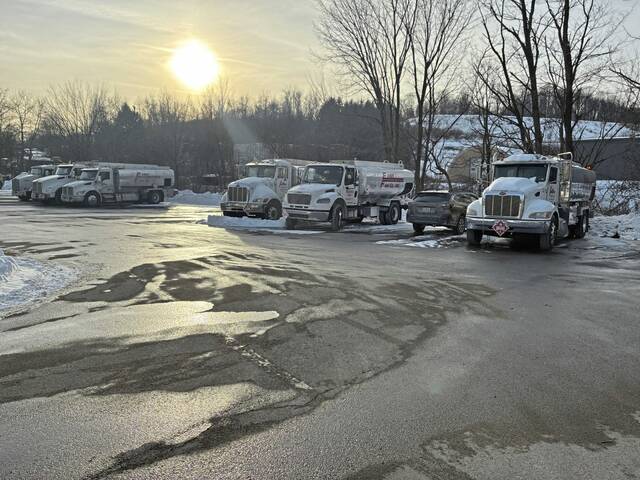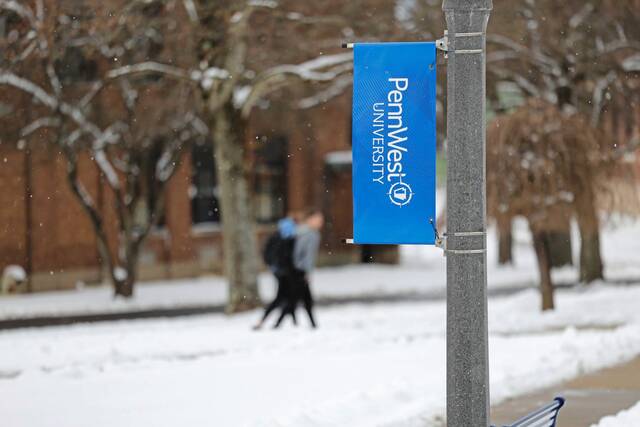The Trump administration is delaying mandates that would have forced steelmakers U.S. Steel and Cleveland-Cliffs to cut toxic emissions, drawing industry praise and environmentalist dismay.
A July 1 order from the Environmental Protection Agency postpones until April 2027 stricter emissions standards for the country’s integrated steel mills, all of which are run by the two companies.
Another rule set to go out this week delays similar regulations on producing coke, a fuel derived from coal and used to melt iron ore, until July 2027. U.S. Steel and Cleveland-Cliffs make much of their own coke, but also depend on external suppliers.
Taken together, the rules would have slashed the release of chemicals linked to cancer, heart disease and other serious conditions. They were approved by the Biden administration last year and set for gradual implementation starting this month.
Now, the EPA is claiming “serious concerns” the steel industry couldn’t have complied in time, according to documents posted to the Federal Register. The agency also said some aspects of the rules need clarification.
In a statement to TribLive, Amanda Malkowski, a U.S. Steel spokeswoman, criticized the Biden-era rule as detached from established science, available technology and business considerations.
“In addition, implementation of the 2024 rule would have come at exorbitant costs and would have provided little, if any, environmental benefit while significantly impacting American jobs and the nation’s critical infrastructure,” Malkowski said.
Cleveland-Cliffs did not return a request for comment.
EPA data suggests costs would have been relatively low, though.
The agency estimates delaying the rules will produce annual savings of between $4.6 million and $4.9 million. It’s unclear whether this is on a per-company or industrywide basis, but for multibillion-dollar firms like U.S. Steel and Cleveland-Cliffs, the savings are minor either way.
And pushing back the integrated steelmaking regulations alone will lead to an additional 120 tons of hazardous air pollutants, according to the EPA. Facilities emitting at least 25 tons of air toxins a year are deemed by the agency as major polluters.
“All of these pushbacks and rule delays, it further harms the people involved,” said Qiyam Ansari, president of Valley Clean Air Now in Glassport. “Obviously, it’s a win for the industry, but I think it’s a loss for community health.”
Annie Fox, an attorney with the Philadelphia-based Clean Air Council, said it’s typical of U.S. Steel to push back “when any additional regulation is proposed or even discussed” by citing costs burdens.
U.S. Steel previously requested a two-year presidential exemption to the integrated steelmaking and coke rules. The EPA’s latest actions on steel industry emissions have the effect of granting that request, according to Earthjustice attorney Adrienne Lee.
Lee thinks it’s unlikely the more stringent rules will go into effect come 2027.
“It’s just making sure that none of the facilities have to comply with the old rule while they’re trying to work on a new one,” Lee said.
Questioning the process
U.S. Steel’s Mon Valley Works is an integrated operation, handling everything from smelting raw materials to making final products for customers.
These types of facilities rely on blast furnaces, which burn much dirtier than the most common alternative, electric arc furnaces.
So, as the EPA crafted the 2024 rules for integrated mills, area residents and advocates gave ample input. Ansari isn’t sure how much sway local commenters had, but the chance to weigh in was much appreciated, he said.
Ansari and others won’t get the same opportunity this time around.
While the EPA typically collects feedback and then sets regulations, the agency has reversed the order of operations here by using a somewhat rare process known as interim rulemaking.
In short, the rules go into effect, then the agency gets reactions to craft a final version.
Environmental advocates say they knew President Donald Trump and EPA Administrator Lee Zeldin would be targeting hazardous air pollutant rules for steelmaking. The process through which they did it has added another layer of concern for Hilary Lewis, steel director at Industrious Labs, an environmental organization focused on heavy industry.
“I think what’s frustrating is that community members who are living with this pollution every day have already shown up, have already sent letters, and already told their story to the EPA through the previous public comment period,” Lewis said.
But by skipping over the typical multi-year rulemaking process, the EPA could be opening itself to legal challenges.
The federal Administrative Procedure Act allows agencies to issue interim rules only under narrow circumstances, such as immediate danger to human health.
“This is supposed to be used for real emergencies,” Fox said. “It’s not supposed to be just because it could hurt a company’s bottom line.”








